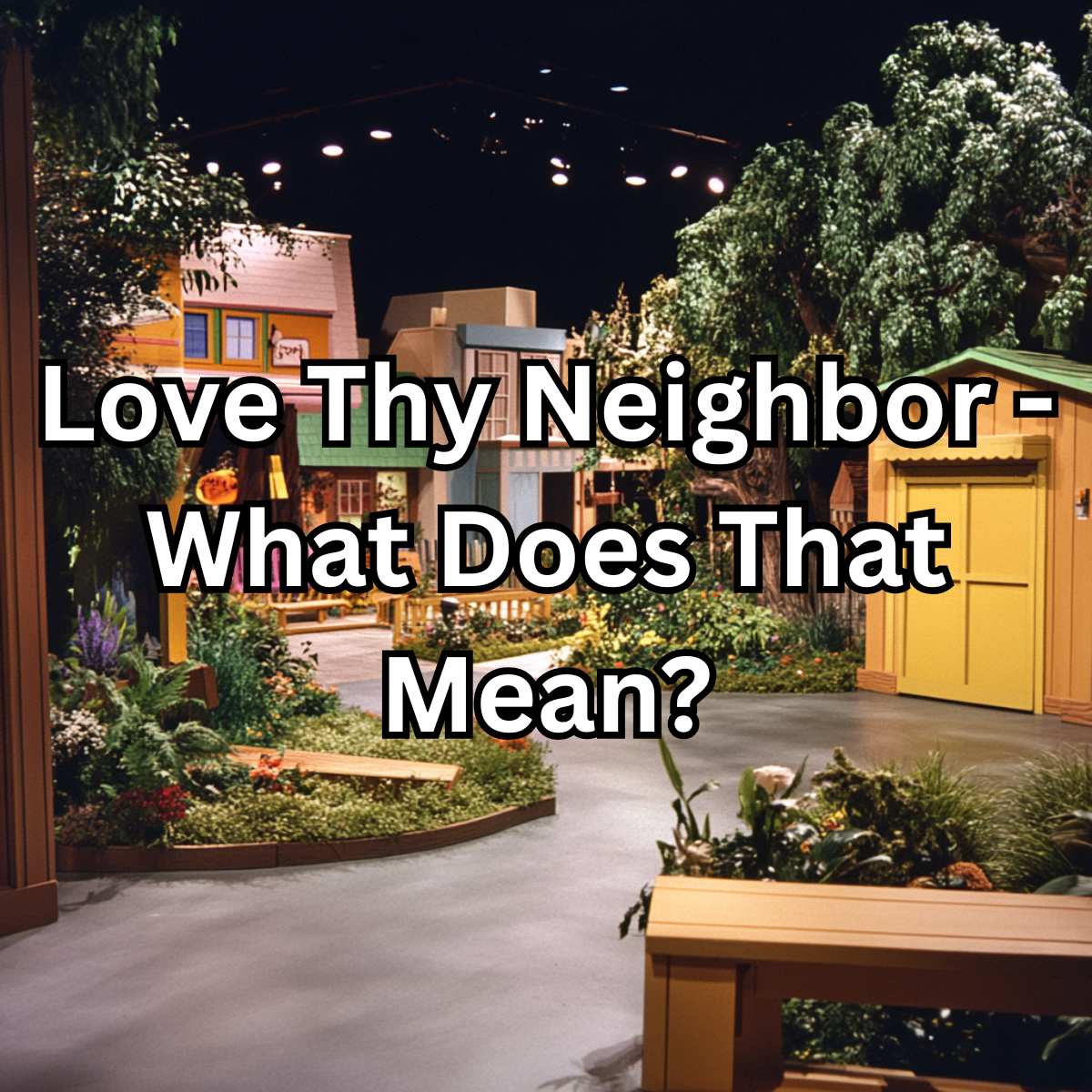The word neighbor is interesting. In passing, I saw a poster that emphasized one of the Great Commandments from Christian Scripture: the admonition to “Love thy neighbor as thyself.” That got me thinking—who exactly is my neighbor?
My first notion was that it doesn’t matter. Just love everyone. But then I started thinking this through. It would be impossible to love everyone and everything as myself. So this admonition is selective, as the word neighbor implies.
Diving in, neighbor is one of those many words in the English language that requires context to derive meaning. The typical definition refers to someone who lives next to you. You might hear:
“Our next-door neighbor brought over cookies.”
The modifier next-door is necessary because neighbor could reference anyone in the community. To that extent, the word can also draw upon an ethical context. Humans, after all, depend on one another for survival—something we often take for granted in the modern age. The reality is that people struggle to survive alone. When banded together, chances of survival increase exponentially. If you take the stance that ethics are ultimately grounded in the survival and sustaining of society, then neighbor takes on even greater meaning.
You’ll often hear:
“Love your neighbor as yourself.”
There are other contexts to consider. In my world, you’ll often hear neighbor used to describe a nearby node or point in a data set. When I was first learning computer science, I studied routing algorithms where the term neighbor could refer to many things: the nearest node by distance, the lowest cost, the lowest error rate—or a combination of factors. Later, as data science began to flourish, this idea of the nearest neighbor became relevant when considering best paths, best decisions, or logical outcomes. In this context, you might hear something like:
“Neighbors are the data points closest to a given point based on distance metrics.”
All three of these contexts are related, in that we must ultimately decide who our neighbor is, what ethical responsibilities we hold toward them, and what actions we will or won’t take. Some argue that how you treat your neighbor is a reflection of how you treat yourself—or how you feel about yourself. Are you a shut-in, largely ignoring the plight of those around you? This says something about you, whether you want to admit it or not. If you are hiding from this ethical responsibility to uphold the society in which you belong, then ultimately, you are hiding from yourself—clouding your soul, darkening your perspective.
I think the word neighbor is best viewed in a metaphorical sense—someone who represents who you choose to care about and treat kindly, regardless of any metric of proximity. In this sense, neighbor is not describing a particular person on your street, but rather an open question that you should consider carefully:
Who is my neighbor?
This is a question you can use to explore your moral obligations and determine where and how you focus your empathy.




